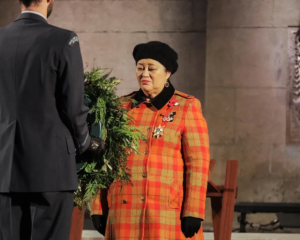A US doctor will tonight be informed his identity may have been stolen in what is being described as a "sophisticated" case of identity fraud by a man who allegedly posed as a psychiatrist and worked for the Waikato District Health Board.
The qualified psychiatrist is believed to be "blissfully unaware" that a man - who gained medical registration in New Zealand - was allegedly using his identity, including degree certificates and US medical registration confirmation, to practice in New Zealand.
Documents produced by the man to obtain medical registration in New Zealand were faultless, and are believed to be genuine, and referees who vouched for his expertise believed they were providing references for the 'real' US doctor whose identity is believed to have been stolen.
It comes after a man, 54, working as a psychiatrist at Waikato DHB appeared in Hamilton District Court on Saturday on a number of charges. He was given name suppression and remanded in custody and is due to appear again in court on Monday.
The man had previously worked with vulnerable patients who had health issues including mental illness and addiction problems.
NZME News Service understands the US psychiatrist who's identity is believed to have been stolen works at a clinic in Naperville, Illinois. Efforts to contact him were unsuccessful today.
The Medical Council of New Zealand confirmed it had arranged to speak to the US doctor tonight, in order to inform him of the charges. The DHB also confirmed it had been in contact with the doctor, and had provided his contact details to the New Zealand police.
Medical Council chairman, Andrew Connolly, said the alleged fraudster appeared to have carried out a "sophisticated identity theft", duping the council, the hospital and the US medical authorities who may have provided genuine documentation believing they were being given to the real doctor.
"Jurisdictions overseas that issued these certificates appear to have done so in the genuine belief they were dealing with a legitimate doctor," he said, adding "official US authorities appear to have issued genuine certificates to the wrong guy".
"One possibility is he has somehow managed to perfectly forge a certificate, but so far everyone who's seen the paperwork has told us it's all believed to be genuine, so we don't believe he's knocked it up on a PC and printed it off.
"If he's forged them, that raises questions for us around document identification and our processes here. We think it's more likely he's stolen the identity which means, can we be one step ahead of someone who can do that?"
Two of the three referees who vouched for the man to the Medical Council were "shocked" to learn they may have provided a reference for the wrong man, Mr Connolly said. The council had "no reason to believe" the referees weren't being genuine when originally spoken to by the council, he said.
Overseas doctors had to pass a "pretty high bar" to obtain Medical Council registration, Mr Connolly said, and must provide original medical school certificates and certificates of good standing from the medical council from each country they have worked in the last five years, as well as up to three referees.
Of the alleged fraudster's documentation, one had an extra letter in the man's name, and the registration process was "put on hold", Mr Connolly revealed. When the man was asked to explain, he produced "legitimate documents" from the country which issued his passport saying it was a 'typo', and confirming his identity.
"All our registration staff go through fraud document training, so we're pretty concerned that this guy got through, assuming what's alleged is borne out. We're very concerned," Mr Connolly said.
The council was exploring ways to improve its anti-fraud measures, and was already considering a mandatory photo ID check in which it would ask overseas applicants to provide a scan of their passport which the council could then forward to referees to ensure they were providing a reference for the correct person.
Earlier today Health Minister Jonathan Coleman said the accused had pulled off the "most complex identity fraud" the health board had ever seen.
It comes as the DHB reduced the number of patients it believed were treated by the alleged fraudster to 20, from 25.
"Over half of those have been contacted. In the main they have been pleased to have been contacted," the DHB said.
"A number of them have also received follow-up consultation.
"We are continuing to follow-up the remaining 75 who have already been treated under a team-based care plan."
The man was hired from overseas, the DHB confirmed, and it was not thought he had practiced in New Zealand prior to working at the DHB.
Immigration New Zealand said the man was granted a work visa to work for Waikato DHB, which was approved after INZ received an employment contract from the DHB and "determined that he met all other requirements to be granted a visa, including registration by the Medical Council of New Zealand".
"Providing false or misleading information to INZ is an offence against the Immigration Act 2009 and is viewed seriously," it said.
"INZ will wait for the court process to be completed before investigating this matter any further, but liability for deportation may follow."
An inspection into the Waikato District Health Board's mental health service is underway.












